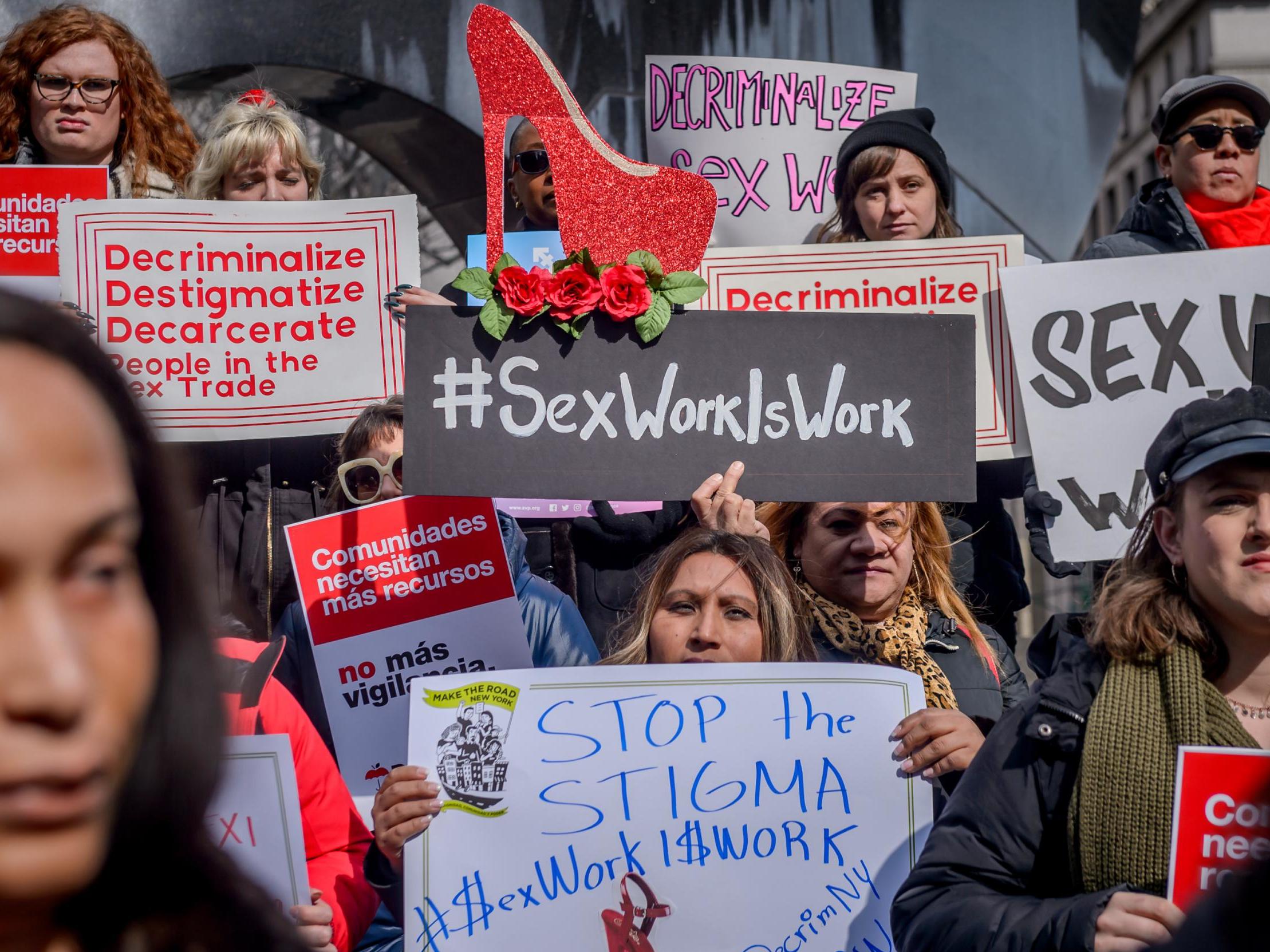Feminists, if you support the ‘Nordic’ approach to sex work, you’re co-signing the imprisonment of women
British women’s rights defenders who favour the laws that punish ‘brothel-keeping’ have a lot to learn from sex workers of colour in New York, who came one step closer to decriminalisation on Monday after pushing a groundbreaking bill

Over the last few days, the difference in feminist approaches to prostitution has been sharply crystallised. In Kildare, Ireland, on Friday, migrant women Adrina and Ana were sentenced to nine months jail for selling sex from an apartment that they shared. (Although their full names have been reported, I am not going to use them.) They are 20 and 25 years old. Adrina is pregnant.
Working together is a safety measure that is used not only by sex workers, but also many other workers. The Royal College of Nursing, the British Association of Social Workers, and the trade union Unison all advise the workers that they represent to work in pairs or groups if possible, as it is so much safer. But for sex workers in the UK and in Ireland, working together for safety means we risk arrest – it is criminalised as “brothel-keeping”.
Adrina and Ana aren’t alone: two more migrant women, Tomara and Erika, were brought before another Irish court yesterday, Monday 10 June, for the same offence. Sex working women are being prosecuted for working together in Ireland at such a rate that it is almost hard to keep up. And it is disproportionately migrant women who face the brunt of this policing.
Of course, there will be misogynists who crow over the arrests of these women. But what should surprise people is the feminist support for laws that put migrant women in prison. Ireland has the “Nordic model”, a prostitution law that is fiercely advocated for by many feminist campaigners, in part because, they claim, such a law “decriminalises” women who sell sex.
While the “decriminalised” Adrina and Ana were receiving their jail sentences, feminist journalist Julie Bindel was in the Scottish parliament – calling for Scotland to adopt the same laws that put these young women in prison.
Bindel treats Ireland as a case study in her recent book on prostitution policy, which is the book she came to the Scottish parliament to discuss. But despite the word count she has devoted to this topic, you’ll search in vain for any acknowledgement that the laws she advocates for criminalise sex working women.
Ana and Adrina’s case has received more attention than usual because of the long jail sentences and the horror of jailing a pregnant woman, but as Juno Mac and I detail in Revolting Prostitutes, arrests and prosecutions of sex workers have been part of Ireland’s Nordic model since the start.
Much of Britain’s feminist commentariat celebrated when Ireland brought in the Nordic model in 2017, despite it being as obvious then as it is now that the law criminalises sex workers for sharing flats. Indeed, the 2017 Nordic model law actually doubled the criminal penalties for such women. Still, congratulations, eh, sisters.
In New York, a very different feminist approach to prostitution. Yesterday feminist organisers, sex workers, anti-trafficking organisations and grassroots community groups stood alongside law-makers at city hall to unveil a proposal for decriminalisation – the Stop Violence in the Sex Trades Act 2019.
The proposals have been driven by the needs and organising of sex workers of colour, particularly street-based black and Latina women, who are disproportionately targeted for arrest under New York’s prostitution statutes.

The Stop Violence in the Sex Trades Act would decriminalise street-based sex work, decriminalise working together – removing the kind of laws that enabled the Irish state to prosecute Adrina and Ana – and represent a huge step forward in tackling police violence against people in the sex trades. The act would also remove the laws that push landlords to evict sex working tenants, evictions which intensify poverty and instability in often-already precarious lives.
At the New York press conference introducing the act, speakers emphasised that this is not only about safety from criminalisation, but also about economic justice. It is about supporting New Yorkers to work in safety, regardless of where or how they work.
It is no coincidence that the law-makers who have spearheaded these proposals have been young women of colour coming from the left: they have made the connections between gender justice, racial justice and economic justice. As the proposals were brought forward, news broke that Layleen Polanco, a Black trans woman who had been found dead in her cell in notorious New York prison Rikers on Friday, had been held there as a result of a prostitution arrest. The brutality and senseless of prostitution arrests is horribly clear. Layleen was only 27 years old.
The news from New York and Ireland makes for stark contrast. Do we want a feminism that sends women like Ana and Adrina to jail – or a feminism that gets women like Layleen out of jail? I know which option I think represents feminist justice.
Join our commenting forum
Join thought-provoking conversations, follow other Independent readers and see their replies
Comments
Bookmark popover
Removed from bookmarks